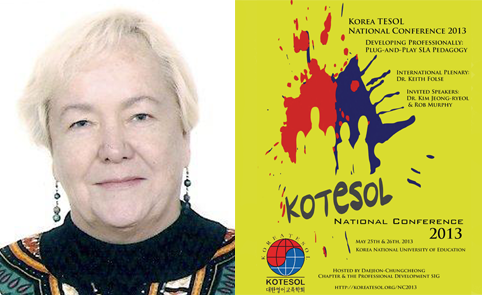
What is Professional Development Anyway?
Leonie Overbeek
Abstract
For those who choose teaching as career, and especially those who choose English as a subject to teach, there seem to be a myriad of choices as to how to develop professionally.At least, as far as getting pieces of paper to certify said development.
In the TEFL/TESOL field there are many places offering a basic TEFL certification, many of them online. Some of these end up being, if not quite fly-by-night operations, whose certificates are scarcely worth the paper they are printed on, not very long-lived. Then there are qualifications backed by a university, such as Cambridge (CELTA, DELTA) or Anaheim (TEFL), which at least offer a substantial course content and hands-on teaching experience.
For those who wish to make more of a commitment, there are many universities offering BA and MA and even PhD qualifications in TESOL, or, of course, any number of degrees with either linguistics or language as the major subject matter.
Is this, however, the only way to consider professional development? What about hobbies, interests, reflection on teaching, joining interest groups or having other qualifications? What do they add to a career path?
In this talk the author will share her own journey, her involvement in teacher training, and her thoughts about the future of the profession of teaching English as a second or foreign language on a contract basis.Specifically, the obstacles that management and admin place in the path of trainers when the object is simply to get as many students enrolled as possible, as well as the tendency to distinguish between an academic career and that of a practitioner, will be examined in the light of the author's personal experiences.
Discussion around the questions that will be raised will be encouraged.
Bio-sketch
Leonie Overbeek has been teaching in Korea since 2007, and before that served as a teacher trainer in Cape Town for two years. She developed a TEYL course for Boston Language College, and presented this and the TEFL course to more than two hundred students during the two years she worked there. She holds an M.Phil in Value and Policy Studies from Stellenbosch University. Before that she worked in the hard sciences, doing research on mining and metallurgy for various organizations in South Africa.


